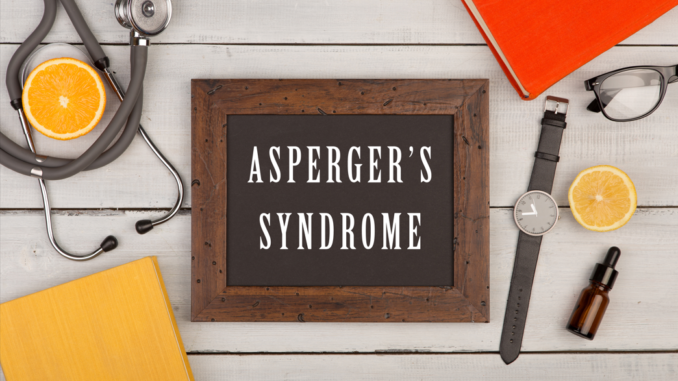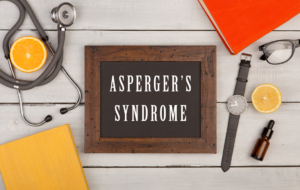
The term “Asperger syndrome” refers to a developmental disorder that is characterized by the affected individual’s impaired capacity to communicate and socialize in a normal and effective manner.
Children that suffer from Asperger syndrome typically display social awkwardness, in addition to a preoccupation that is all-consuming in nature on particular subjects.
Under the category of pervasive developmental disorders, sometimes known as autistic spectrum disorders, individuals with Asperger syndrome are categorized together with a wide variety of other conditions.
Problems with communication and the ability to interact socially are a hallmark of each of these diseases. According to medical professionals, Asperger syndrome is a kind of autism spectrum disorder that is on the more mild end of the spectrum. There is currently no treatment available for Asperger syndrome.The affected youngster can benefit from a variety of programmed that can aid in effective social interaction and communication.
Table of Contents
Asperger syndrome Symptoms
The following is a list of some of the signs and symptoms associated with Asperger syndrome:
Manifestation of abnormalities in non-verbal communication, such as inadequate facial expressions, a lack of or evasive eye contact, and strange movements and body postures
Occupation with drawn-out, one-sided conversations, without paying attention to whether the listener is understanding what is being said or whether they wish to change the subject.
Exhibit an intense fascination with one or two narrow, particular issues such as baseball statistics, train schedules, snakes, or the weather.
Clumsy actions, frequently accompanied by a lack of coordination.
Talking in a voice that is unnaturally high-pitched, droning, or robotic
Difficulty comprehending humor or perceiving the emotions or motives of other people.\
It’s possible that other people will have the impression that a person with Asperger syndrome doesn’t seem to comprehend, isn’t sensitive to, or doesn’t empathize with the feelings of others.
When compared to children who are affected by more severe forms of autism, children who have Asperger syndrome do not typically have any delays in the development of language abilities.It suggests that afflicted children will typically begin using single words by the age of two and phrases by the age of three. On the other hand, they could have trouble carrying on typical conversations.
It’s possible that interactions lack enough give and take, which can lead to unpleasant situations.
Children with Asperger syndrome who are already in school as well as toddlers may have no interest in making new acquaintances. A delay in the development of motor abilities, such as catching a ball, walking, or playing with playground equipment, is something that can happen to very young children.
Children with Asperger syndrome may have an extremely active lifestyle. On the other hand, they could suffer from anxiety or sadness when they are adults.

Causes of Asperger Syndrome
Research is still being done to determine the precise reasons why people have Asperger syndrome.
On the other hand, it is speculated that genetic flaws might be the root of the problem.
Alterations in the structural make-up of the brain are thought to be connected with the abnormalities as well.
It is essential to stress that, contrary to the widespread notion, Asperger syndrome and other conditions that fall under the autism spectrum do not have any connections to vaccines received during childhood.
Comparatively speaking, the likelihood of boys having Asperger syndrome is higher than that of girls.
Diagnosis of Asperger syndrome (Tests)
The intensity of the symptoms associated with Asperger syndrome can range quite a bit, making accurate identification of the condition rather challenging.
If the kid displays some of the signs associated with the disease, the attending physician may suggest that the child undergo a comprehensive assessment by a group of subject matter experts.
In most cases, the evaluation will consist of both observations and questions concerning the child’s communication abilities, social contact, developmental features, and friendships.
A number of different exams will be utilized in order to determine the academic capacities and intellectual levels.
The child’s abilities in areas such as language, communication, and motor-visual problem solving may be evaluated using these types of tests. The tests might also evaluate the psychological, emotional, and behavioral elements of the candidate.
If a kid’s symptoms match the criteria outlined in the DSM, also known as the Diagnostic and Statistical Manual of Mental Disorders, then the child is given a diagnosis of Asperger syndrome. The American Psychiatric Association has compiled a diagnostic manual that can be used as a reference for making a determination regarding a patient’s mental health.
The following are some of the DSM criteria that must be satisfied in order to make a diagnosis of Asperger syndrome:
- Deficient eye to eye contact
- No substantial language delays
- Difficulty in forming friendships Abnormalities in one’s body posture or social expressions
- Absence of interest in participating in group activities Preoccupation with a single subject area
- A stubborn stance in the face of change
It is essential to keep in mind that in the beginning, a number of children who have Asperger syndrome may first be misdiagnosed with other disorders, such as OCD or ADHD. This is due to the fact that the symptoms of certain diseases are comparable to those exhibited by people who have Asperger syndrome.
These problems may also occur along with Asperger’s syndrome, which may further delay the diagnosing process.
Asperger syndrome – Diagnostic Scale
The Asperger Syndrome Diagnostic Scale (ASDS) is a tool that evaluates a person’s behaviors and helps determine whether or not they have Asperger syndrome in a short amount of time. It also helps establish goals for intervention and change, keeps track of progress in behavior, and measures multiple aspects for the purpose of conducting further research.
This scale can be completed in about fifteen minutes by someone who is familiar with the child and has a good understanding of them.
Using the assessment: The various items of the ASDS signify behaviors that are characteristic of individuals who have Asperger syndrome, and the total score is calculated by adding all of the items together.
The scores that are collected from the five subtests provide the examiner with data that they may use to compare the affected children’s scores to those of normal children and discover any irregularities that may be present.
The aggregate score not only contributes to a more accurate diagnosis of Asperger syndrome, but it also helps reduce the total amount of time needed to diagnose the condition as a whole.
A wide variety of skills, including social, cognitive, sensorimotor, and cognitive, are among those that can be measured by the various forms and scales.
Treatment for Asperger Syndrome
The basic symptoms of Asperger syndrome cannot be treated at this time.However, the majority of children who are diagnosed with Asperger syndrome have the ability to benefit from early specialized intervention programs as well as other treatment choices, and they can go on to become well-adjusted and content adults as a result.
The following is a list of some of the available treatment options for those who have Asperger syndrome:
CBT – Cognitive Behavioral Therapy is a form of treatment that employs a wide variety of methods to modify maladaptive behaviors such as fixations, interrupting, anger outbursts, and meltdowns. Additionally, it helps patients develop the skills necessary to cope with anxiety and comprehend the emotions of others.
Typical objectives of the treatment include instructing the kid on how to identify problematic behaviors and circumstances, followed by the formulation of a plan to address these issues.
Training in social skills and communication: children who are affected are given direct instruction in the tacit norms of socialization and communication. They may also have the opportunity to acquire a natural, fluent rhythm in their speech, as well as the accurate interpretation of a variety of communication tactics, such as sarcasm, voice tone, gestures, humor, and eye contact.
Medication: There are no medications on the market that are specifically designed to treat Asperger syndrome.
However, in order to ease symptoms such as depression, anxiety, hyperactivity, and other symptoms associated with this condition, doctors may prescribe medication.
Authoritative Clinical References
Asperger’s Syndrome – https://pubmed.ncbi.nlm.nih.gov/30736970/
Treating clients with Asperger’s Syndrome – https://capmh.biomedcentral.com/articles/10.1186/1753-2000-7-32


Be the first to comment